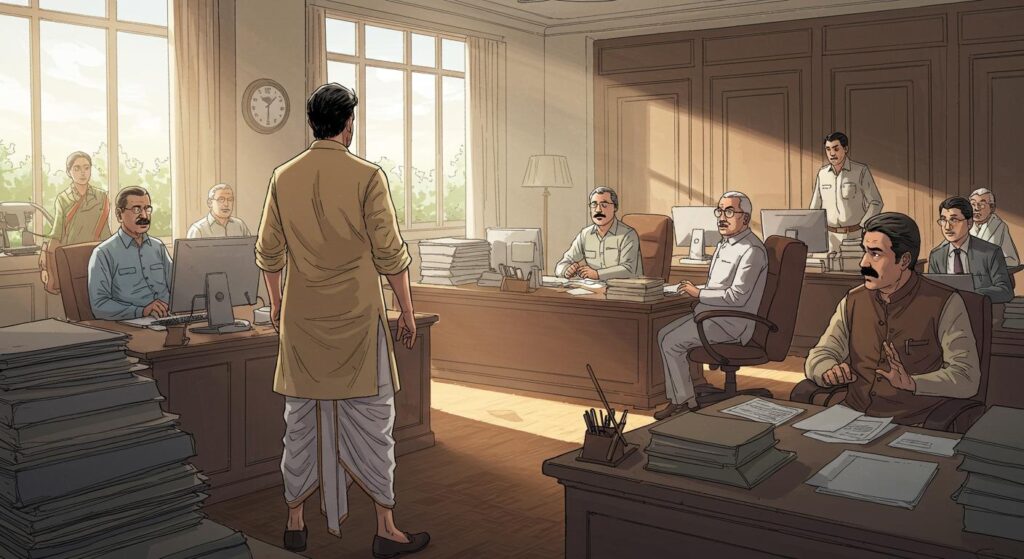For those drawn to the stranger tributaries of international affairs, the Alaska summit between Vladimir Putin and Donald Trump has delivered an under-the-radar subplot—one that bypasses classified briefings in favor of, well, biological ones. As NDTV reports, Putin’s bodyguards were observed handling a conspicuous “poop suitcase,” believed to contain the Russian president’s own carefully collected waste, destined for transport back to Moscow.
On the surface, it all sounds like the sort of bizarre protocol you’d file next to “leader doubles” and the infamous nuclear football. But the practice is neither satire nor urban legend. According to Firstpost, Russian security—specifically the Federal Protection Service (FPS)—has been tasked with collecting and securing Putin’s bodily waste on every diplomatic mission abroad, bagging and stowing it with airtight diligence before sealing it away in a dedicated briefcase for the journey home. The rationale? To keep foreign intelligence services from sifting for clues about the president’s health, a concern that seems both deeply personal and peculiarly high-stakes.
Where Statecraft Gets Biological
This is hardly a one-off event: Firstpost, citing a 2022 Paris Match investigation, notes that the FPS has implemented these waste-recovery measures during Putin’s trips to France, Saudi Arabia, and Austria, in addition to more recent outings. It appears the “poop suitcase” is more than a crisis-inspired accessory—it’s practically part of the travel uniform. Firstpost relays that sources in West Asia recounted FPS agents sealing the evidence in custom pouches and imposing absolute secrecy on staff; former BBC journalist Farida Rustamova, for her part, heard of similar procedures during Putin’s Vienna visit, even down to the use of a special porta-potty.
This all fits with a theme of tightly managed presidential appearances, especially in light of ongoing public speculation about Putin’s health. As NDTV summarizes, footage from recent years has sparked concerns—like the president’s visible leg tremors or seat twitching during public events—with speculation ranging from neurological issues to outright online rumors (the latter which the Kremlin has dismissed on record).
Yet, for all the tabloid flavor, there’s method underpinning this oddity. Both NDTV and News18 explain that protecting the leader’s health data is a defensive move; human waste can provide a treasure trove of medical clues. Should a rival nation get hold of those clues, it could tip the scales of geopolitical guessing games—another form of intelligence gathering, just less glamorous than clandestine recordings or code breaking.
An Old Spy Game — From Stalin’s Outhouse to Bugs in the Plumbing
It turns out, as Firstpost digs up, that this fixation isn’t unique to modern Russia. Joseph Stalin’s secret police—always ones for a hands-on approach, apparently—allegedly installed custom toilets to collect Mao Zedong’s waste during a 1949 state visit. The goal? To run chemical and psychological analyses on his excreta, with the hope of profiling the Chinese leader’s mindset and health. British intelligence, too, reportedly sifted through soiled Soviet toilet paper in Germany to glean whatever insight they could.
So, while “poop porter” might sound like a job invented by internet meme artists, it has a certain pedigree in the annals of statecraft. The practice, according to Firstpost’s sources, has likely been in place for Putin since the dawn of his leadership way back in 1999.
The Oddities of Absolute Security
There’s little question that carrying the poop suitcase must rank among the less sought-after roles in high-level security. The News18 outlet calls it a “hallmark” of Putin’s rigorous entourage—a task undertaken quietly and with no real chance of a medal. Yet, in its own way, it’s a fitting emblem for our age of over-the-top image management and data paranoia. Every detail, down to a head of state’s most mundane biological output, is now locked away behind layers of protocol and secrecy.
Still, one can’t help wondering. How does it feel to be the person trusted with such a singular state secret? Is the next revolution in diplomatic technology going to hinge not on cyber encryption, but on suitcase engineering and bathroom logistics? Or perhaps the tale of the poop suitcase is just a reminder: in the high-wire act of power, some roles—however unglamorous—are truly indispensable.
Every era finds its own peculiar obsessions, and every leader, apparently, his own very personal briefcase. Boundary lines may shift, alliances may evolve, but for now, some peculiar rituals remain untouched—even, or perhaps especially, in the world’s highest-stakes meetings.







